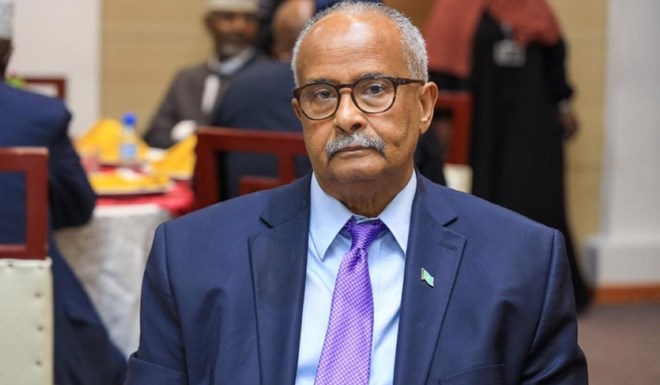
By PAULINE KAIRU
Tuesday January 23, 2024

Since 1960s, when Kenya, Uganda and Tanzania formed the East African Community (EAC), Somalia always wanted to be part of the bloc. And so, it was the realisation of a decades-long dream for Mogadishu when it acceded to the bloc late last year, says Somalia's Special Presidential Envoy to the EAC Dr Abdusalam Omer.
From the start of his term in office, President Hassan Sheikh Mohamud’s agenda was to join the EAC. In his current tenure, he renewed determination to surmount the internal obstacles that stood in the way of their integration into the Community.
“For President Mohamud, the EAC mission has become deeply personal. It represents a commitment to ensure that Somalia, despite its internal challenges, does not lag in the collective progress of the region,” Dr Omer said.
“People say Somalia has been rejected many times. There’s really never been a rejection. It was just not the right time. It falls on the internal problems and internal dynamics of Somalia,” he said.
Already, he said, Somalis are actively involved in business and investment across East Africa, reflecting a broader commitment to fostering economic ties, cultural exchanges, and collaboration in various sectors.
They are everywhere. They work in villages, they work in amazing cities, they work in and invest in different neighbourhoods in Mombasa, Nairobi, Kisumu, Dar es Salaam, Juba and Kampala, so I think it's a good thing.”
Somalia boasts the longest coastline in Africa, spanning 3,300 kilometres along the Gulf of Aden to the north and the Indian Ocean to the east and south. This geographical advantage presents strategic opportunities with immense potential for fishing. This has attracted the interest of Chinese, Spanish, and Iranian fishermen, both legally and illegally.
“The fisheries potential, and as Somalia improves its security situation, abundant livestock, and the vast arable land of eight million hectares further contributes to the nation's potential for agricultural development, and food security for the region,” Dr Omer said.
Dr Omer said the majority of Somalia legislators support the EAC integration, although a minority may express opposition, “which is expected in any democratic setting”.
“There is no major concern. For instance, people always raise questions about what constitutes a political federation, the question of sovereignty comes into the picture. But that's not the way the Treaty is written. The Treaty respects the constitution of each member state,” he said.
He is optimistic about the benefits that come with EAC membership.
“We could have a bullet train going from Kismayu to Kigali. Or from Mombasa to Hargeisa. That’s what this integration should do. “Why should East Africans get poultry products from Brazil? There's enough in Uganda for everyone. The same for sugar.
These are things that should be worked out. We should be seeing more progress on the Customs Union and the Common Market from those countries that have been members of the Community for the longest time,” he said.
“Promoting information sharing will be one of the keys to accelerating integration. Initiatives like expos and regular communication platforms can foster a deeper understanding among member states, fostering opportunities for economic growth, regional collaboration, and enhanced trade relations, but also a sense of regional unity,” he added.
Although security remains a critical aspect in Somalia, Dr Omer said significant strides have been made with the ongoing offensive against Al Shabaab across major towns and cities.
“We’ve been fighting Al Shabaab for the past 15 years, and the current government is having successes,” said Dr Omer.
“The type of warfare that Al Shabaab and other groups like that are involved are not specific, they are regional… They are global, and I think one of the major advantages of Somalia joining the EAC is to organise to fight together. EAC has already been doing it with us.”
Overall, Somalia's journey towards joining the EAC demonstrates the country's determination to overcome obstacles and contribute to the collective progress of the region.
Recent milestones, such as the lifting of the arms embargo that had been in place for over 30 years and writing off debts amounting to $4.5 billion, are monumental achievements for Somalia.
Dr Omer said this signifies growing confidence in the country's stability and progress. This will open doors for enhanced support in addressing security challenges and promoting peace and stability. The debt relief also paves the way for long-term investments and development.
“These developments will allow Somalia access to necessary weaponry and equipment to strengthen its security and defence capabilities,” he said.
“Already, there has been consistent recruitment and training of our army."